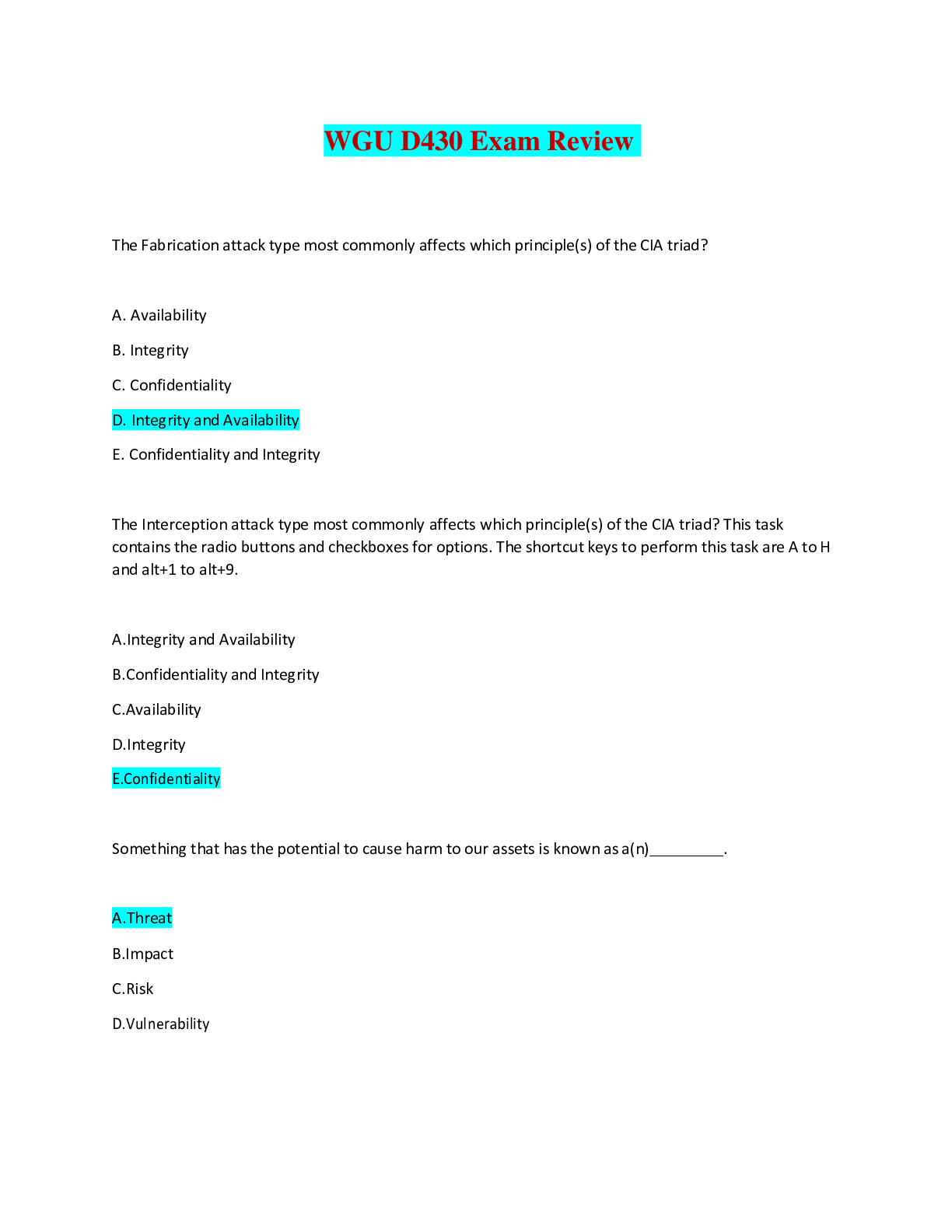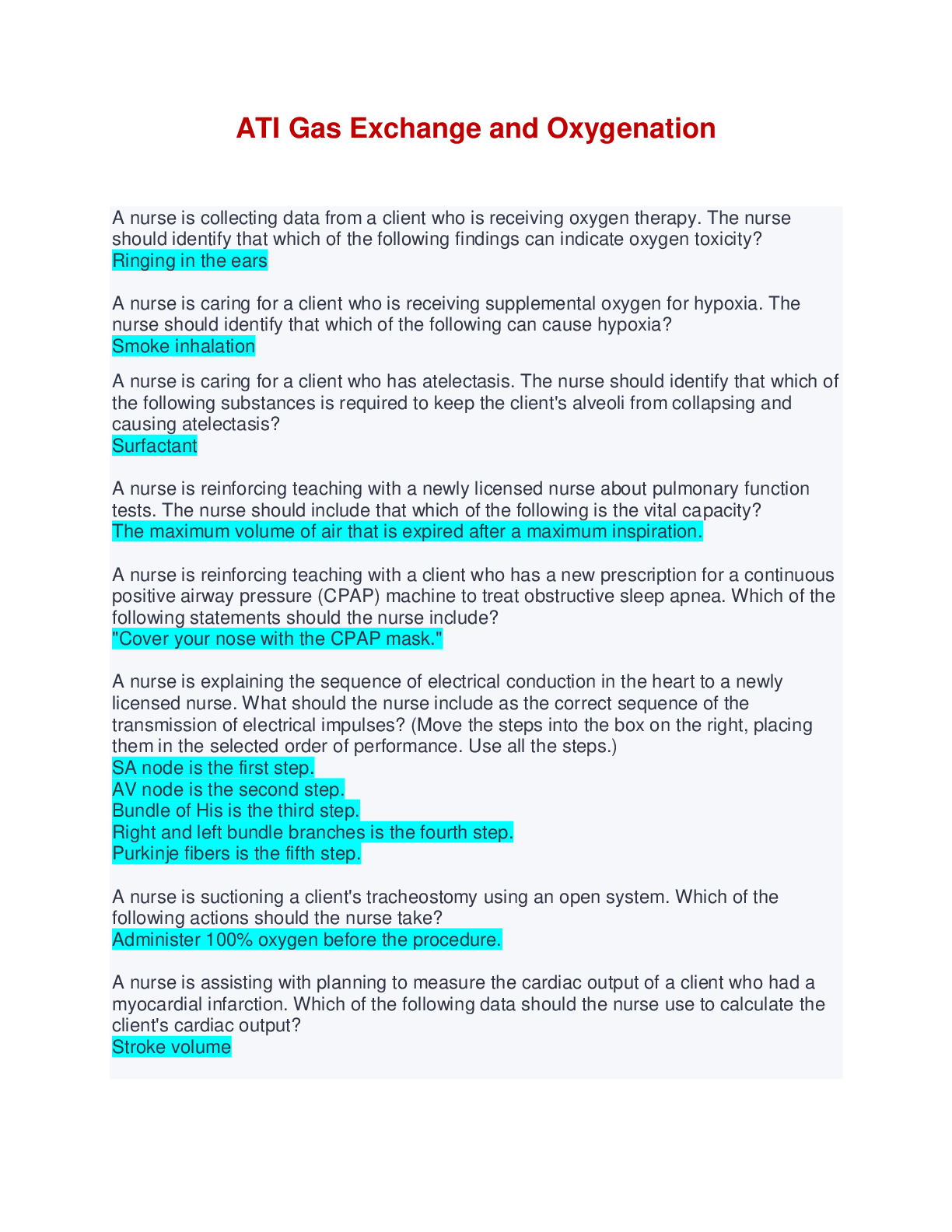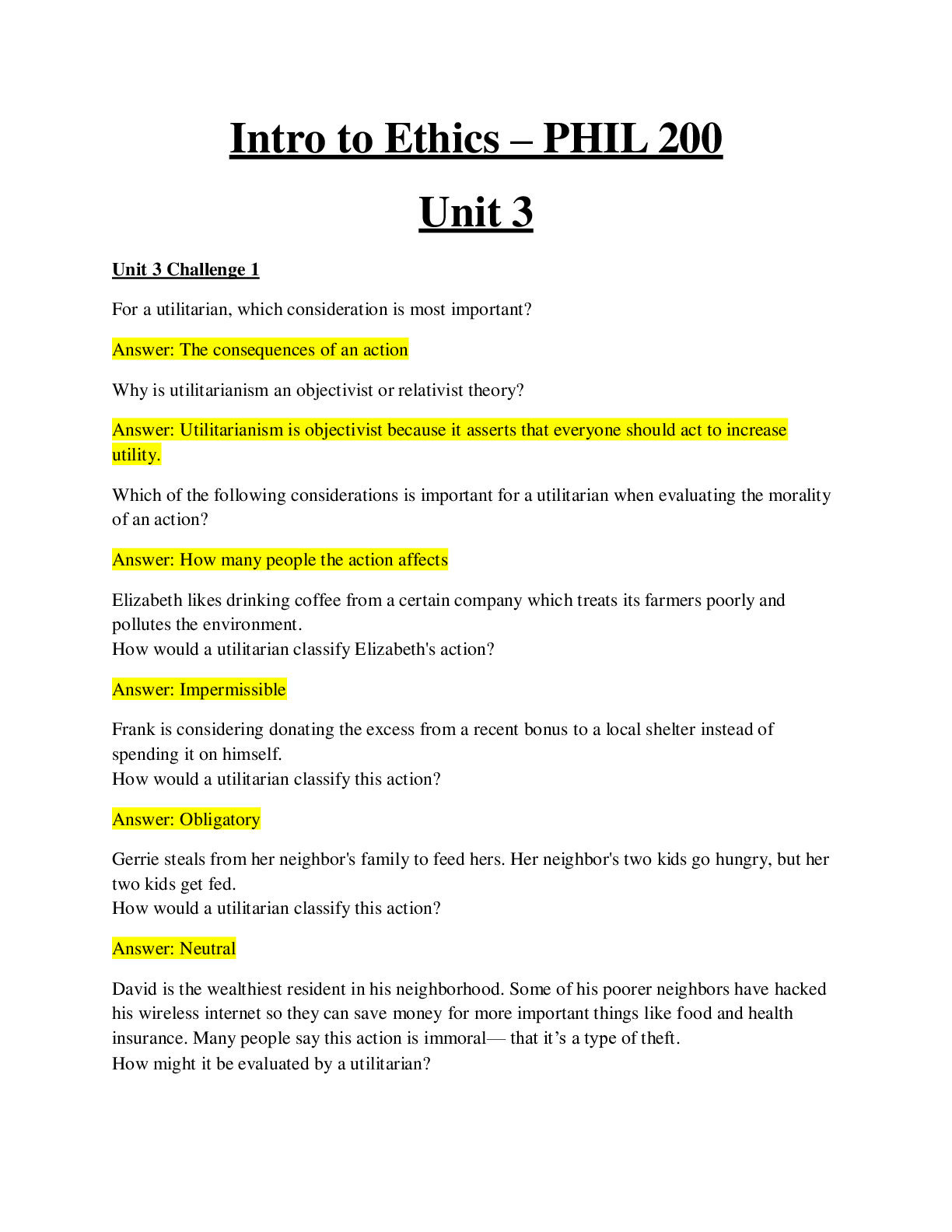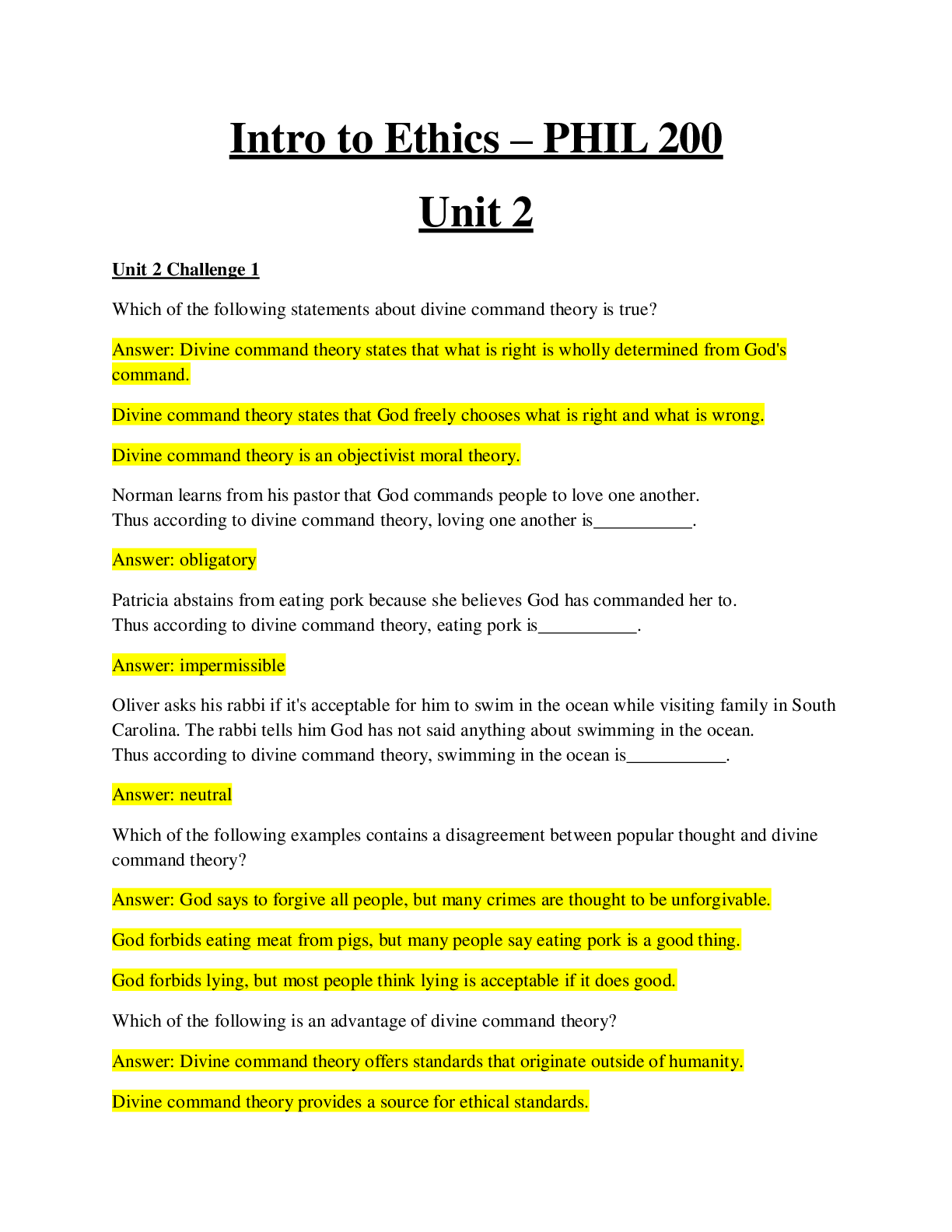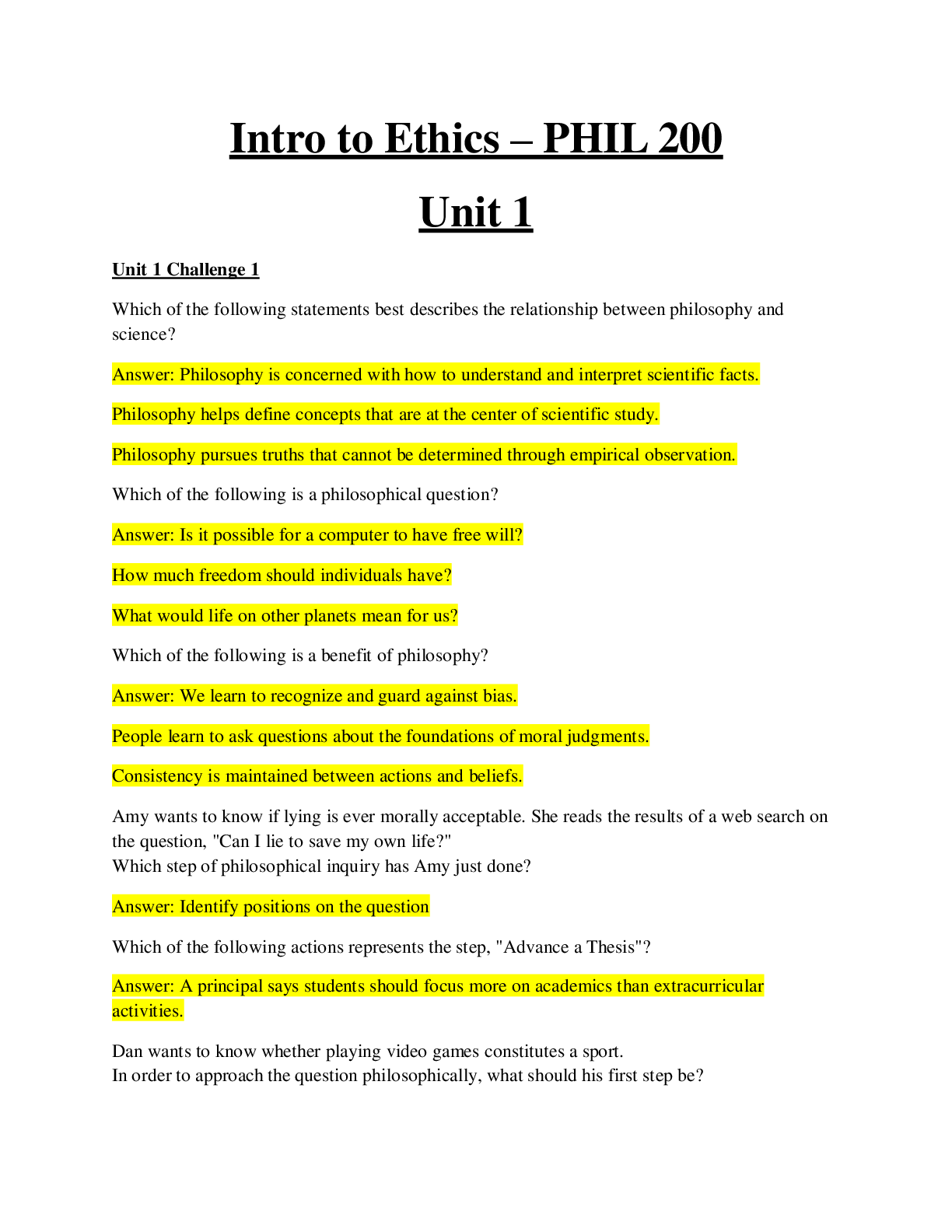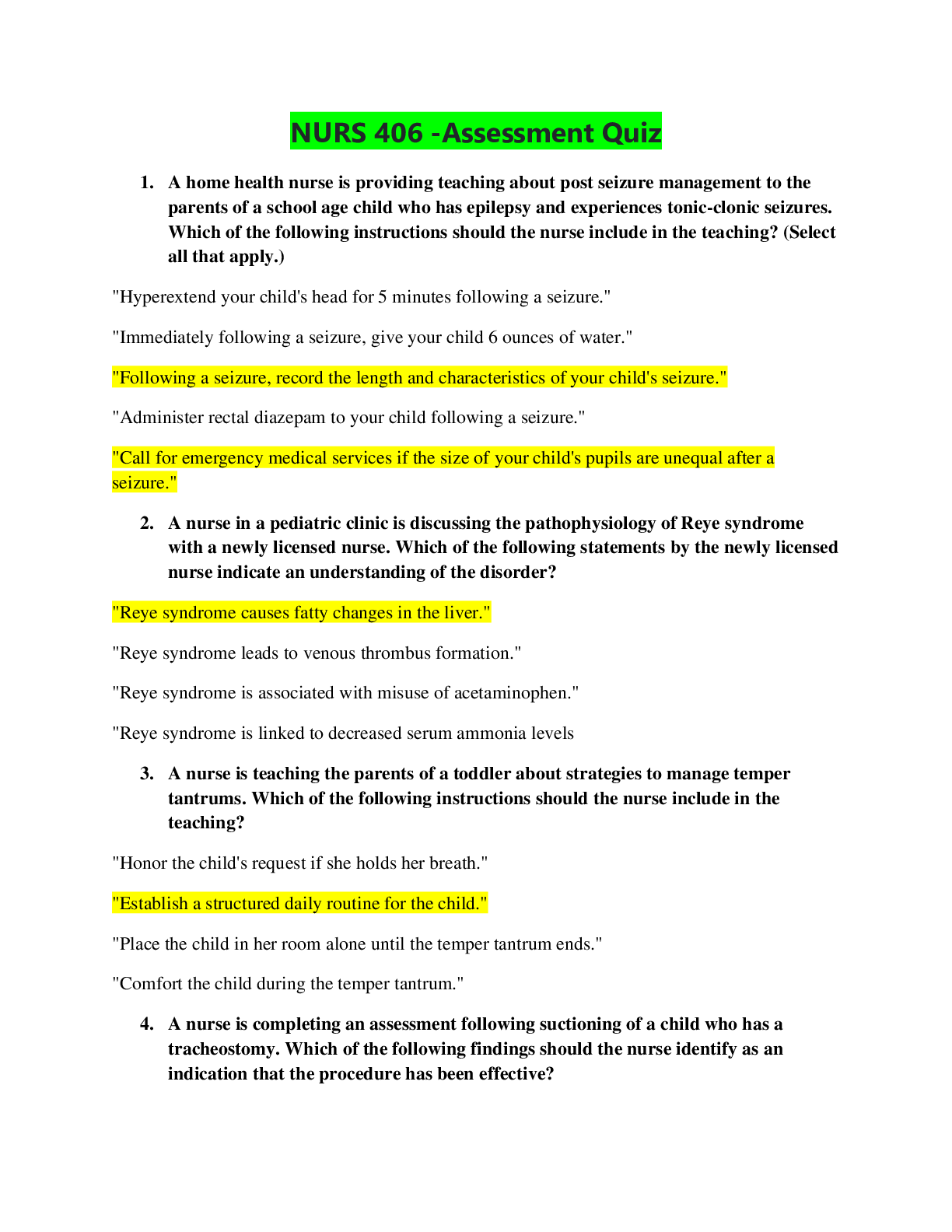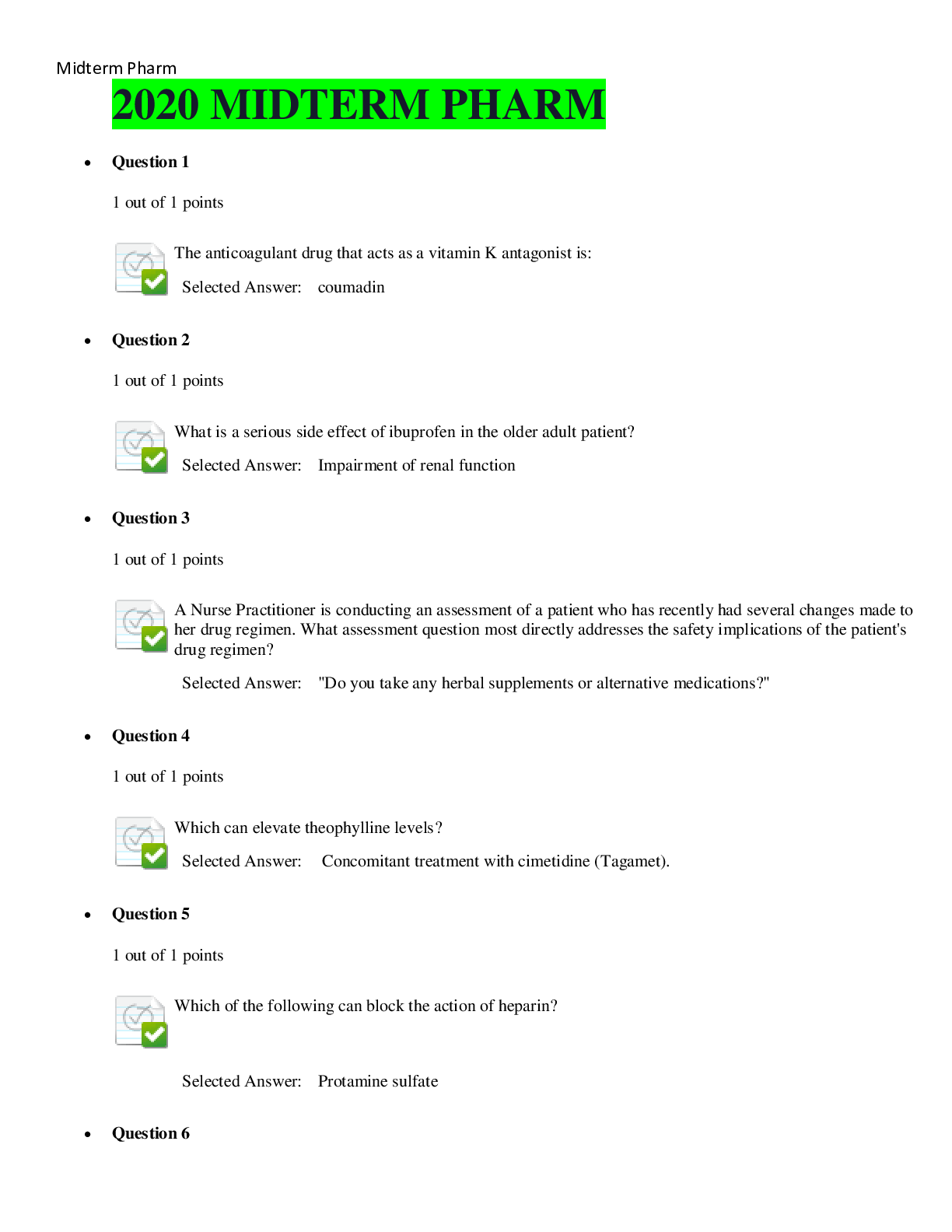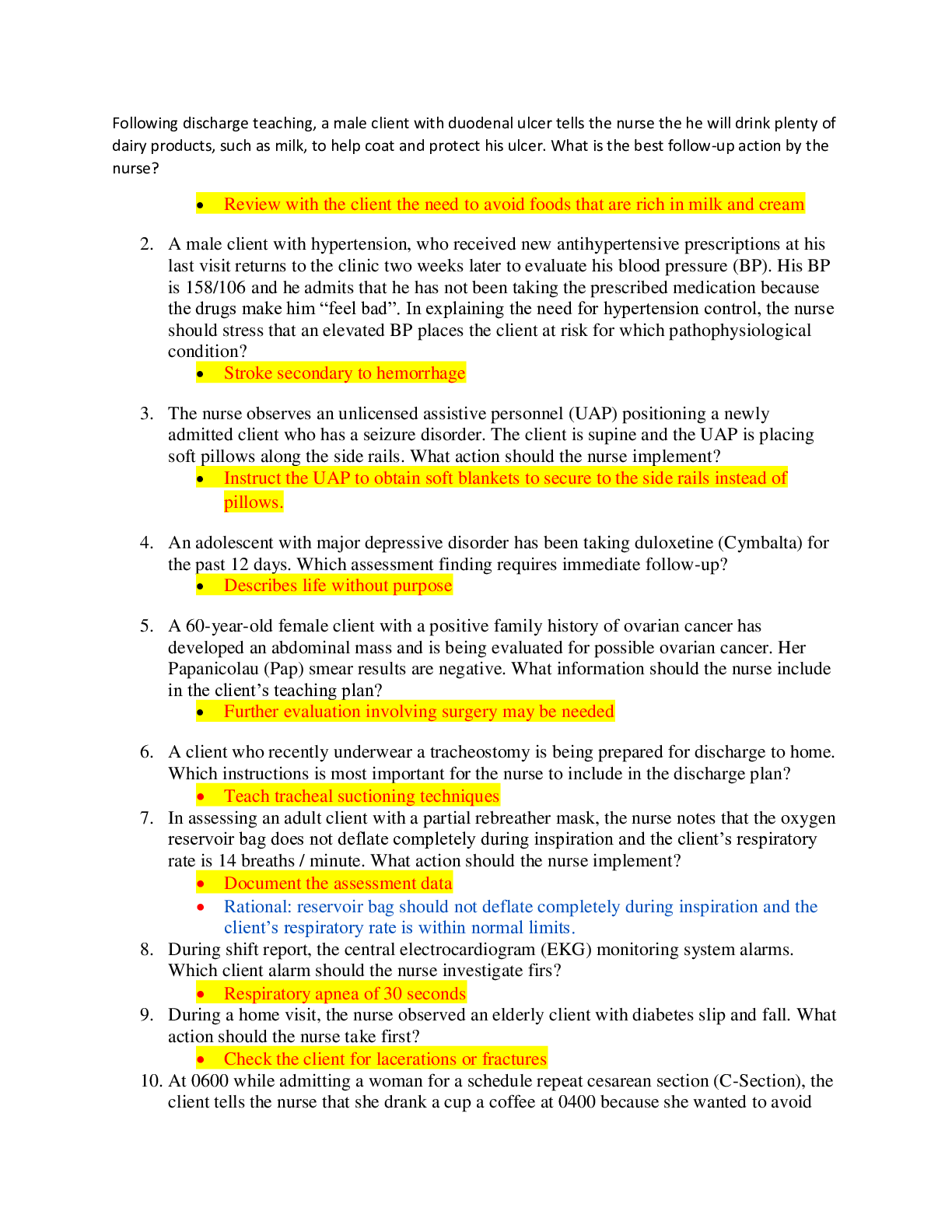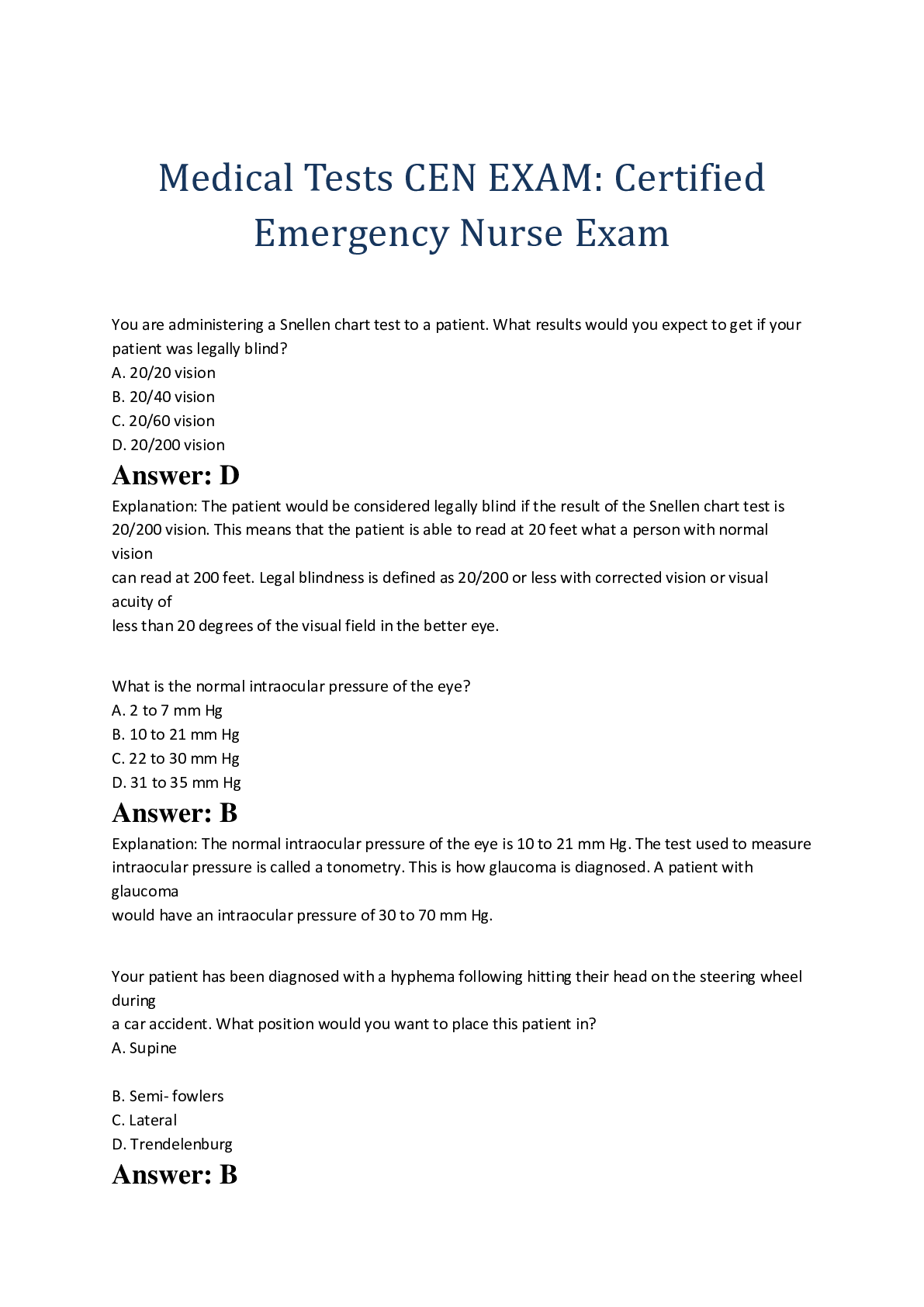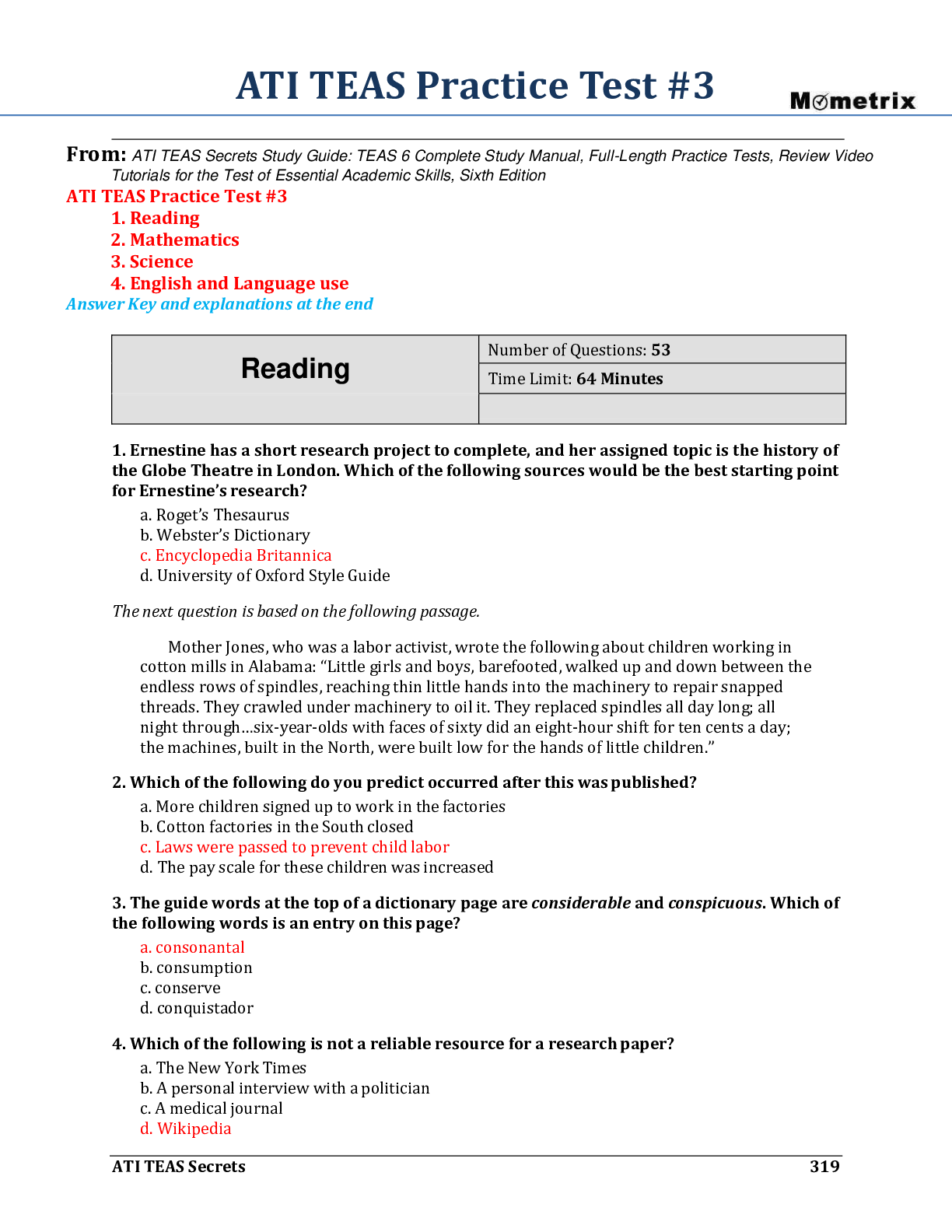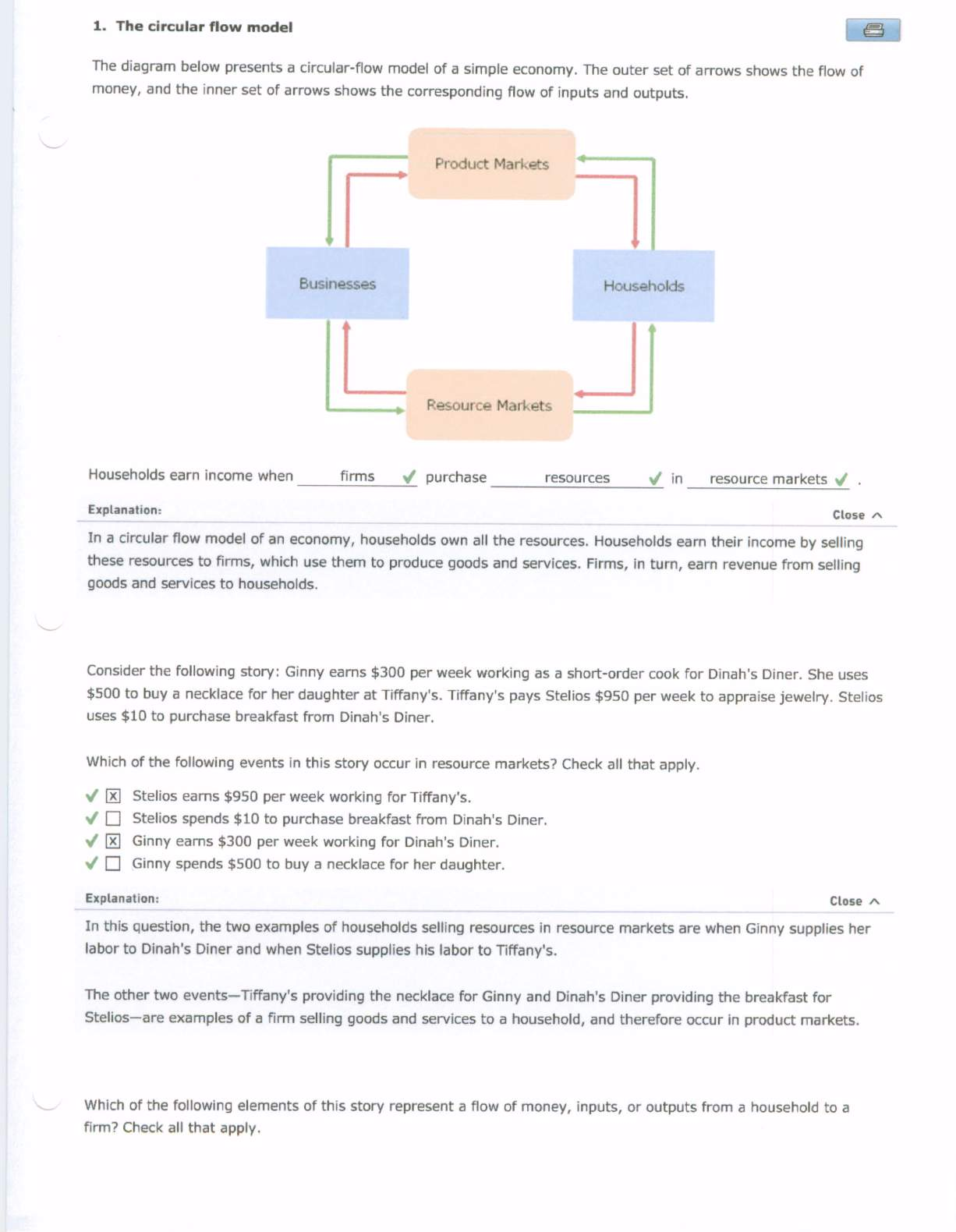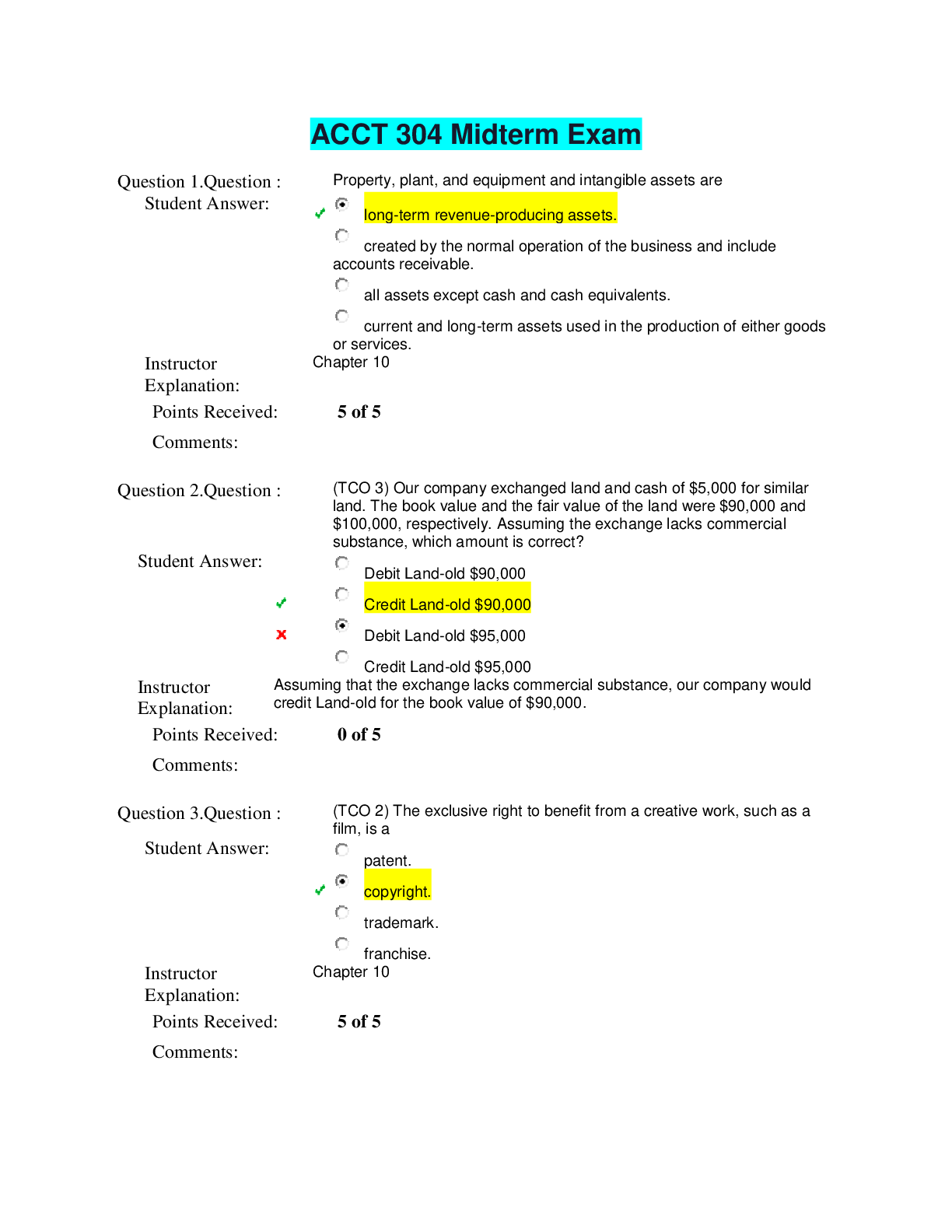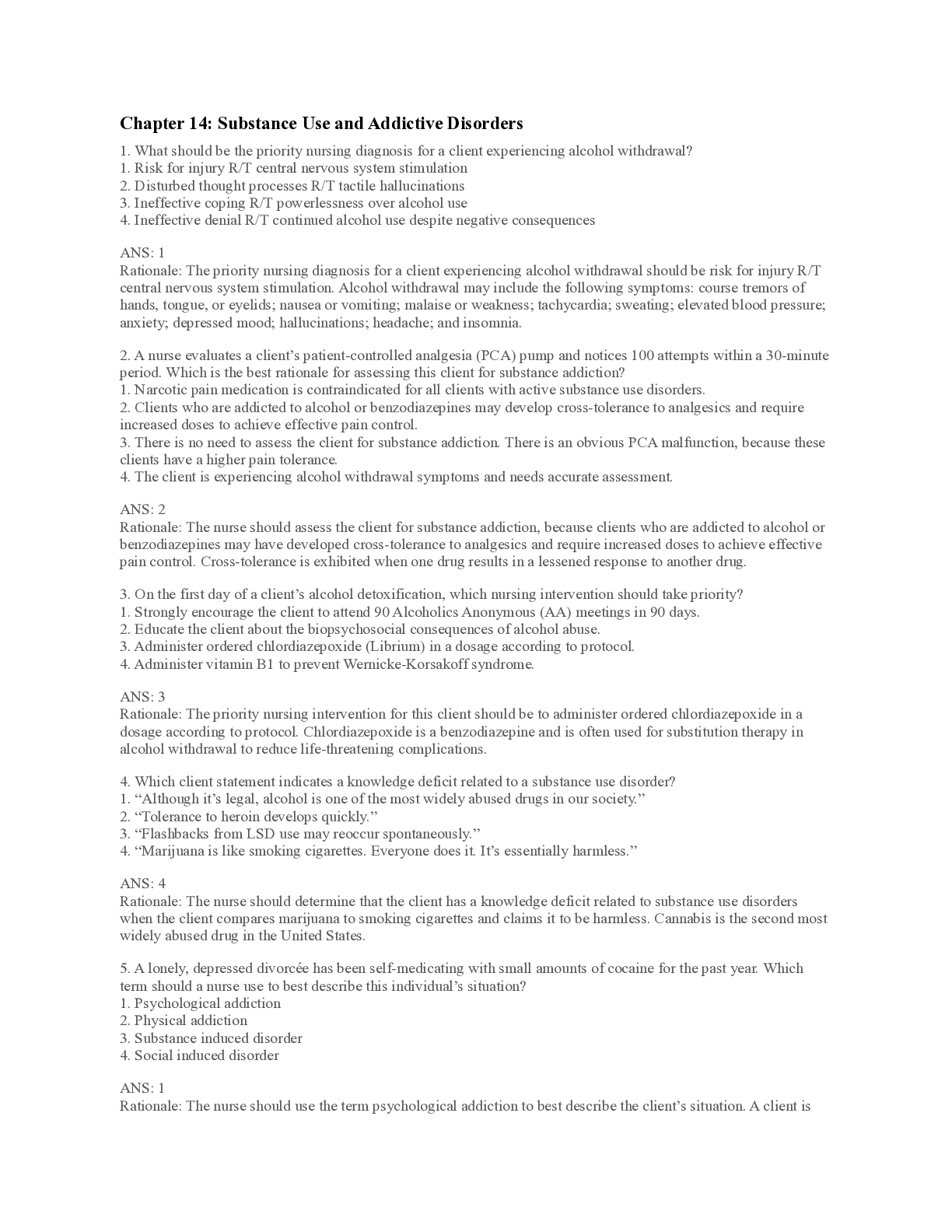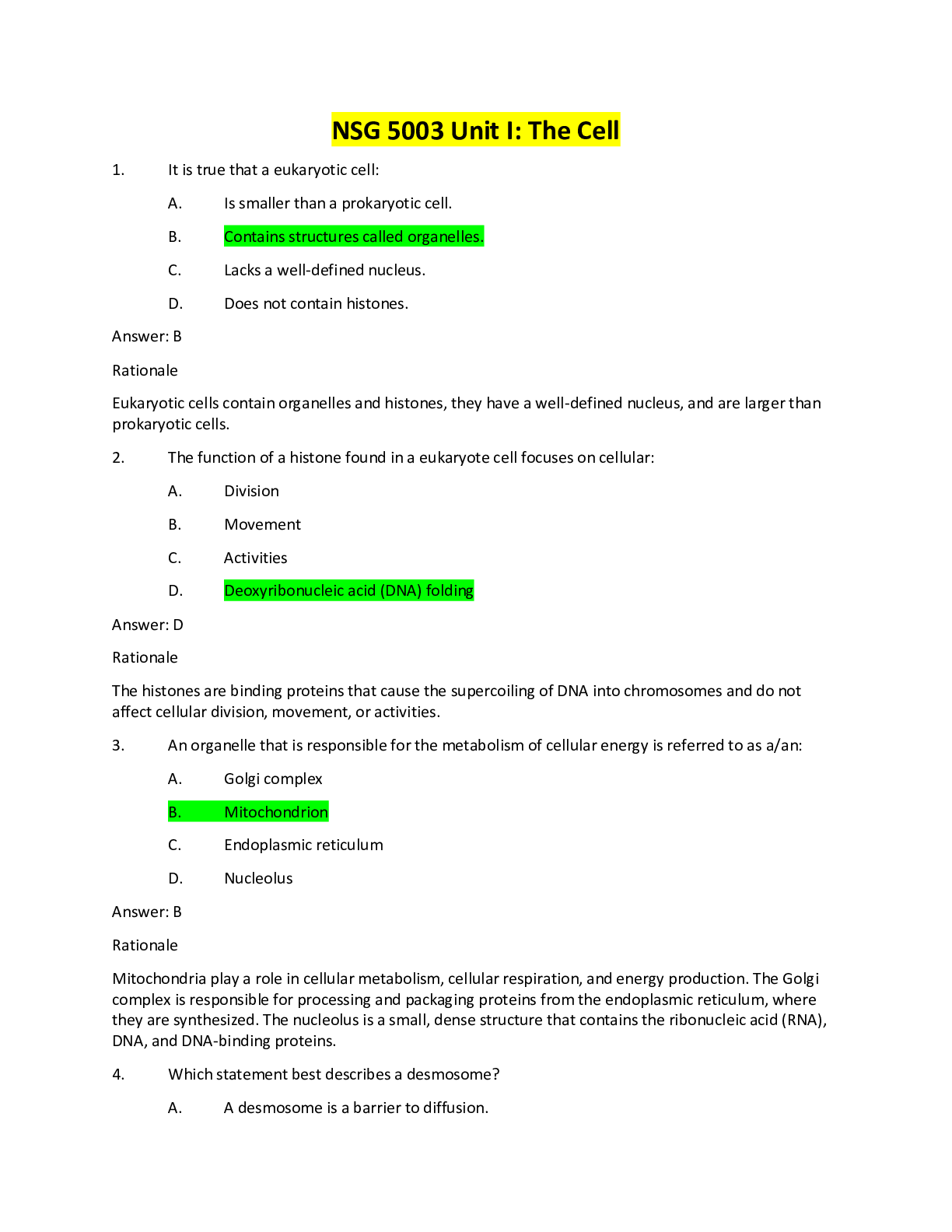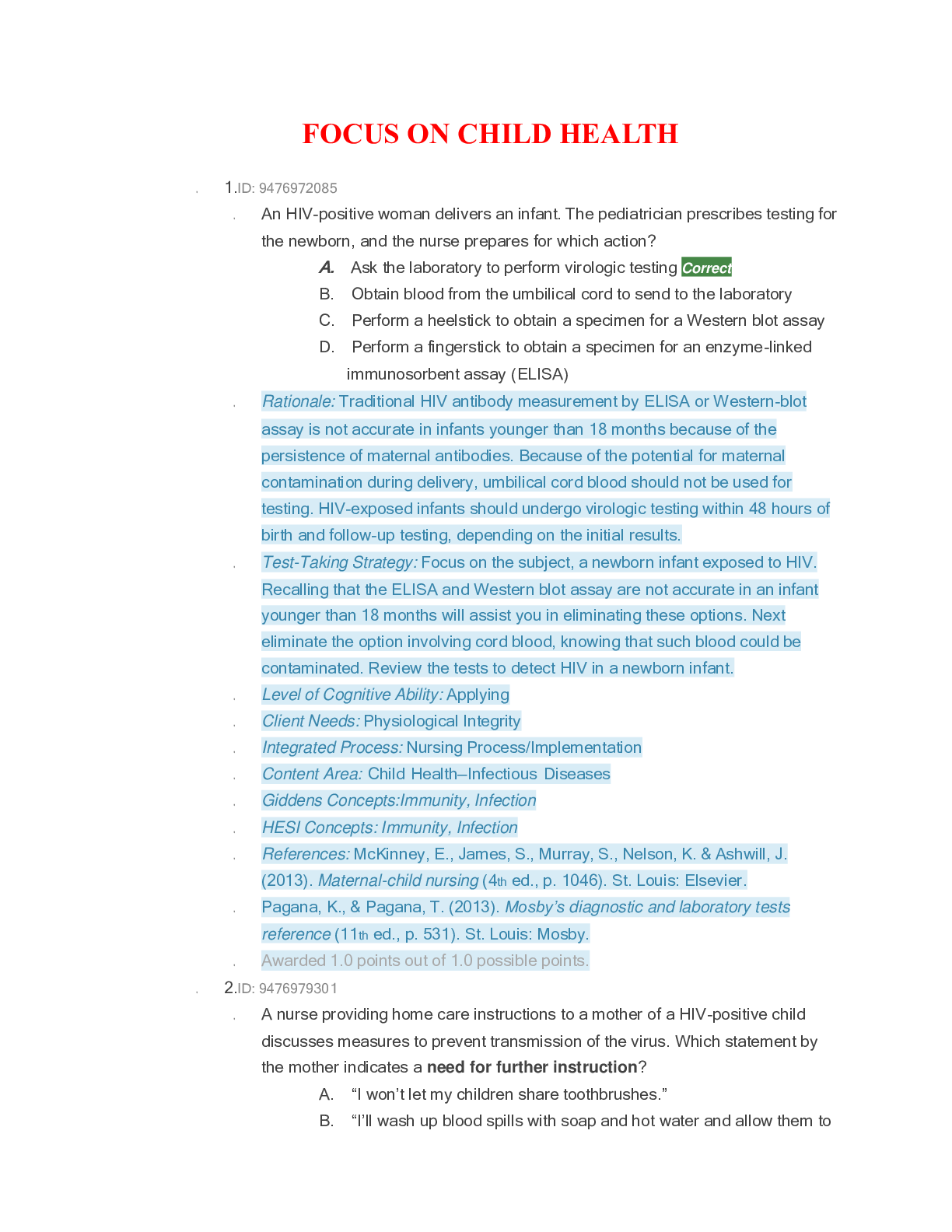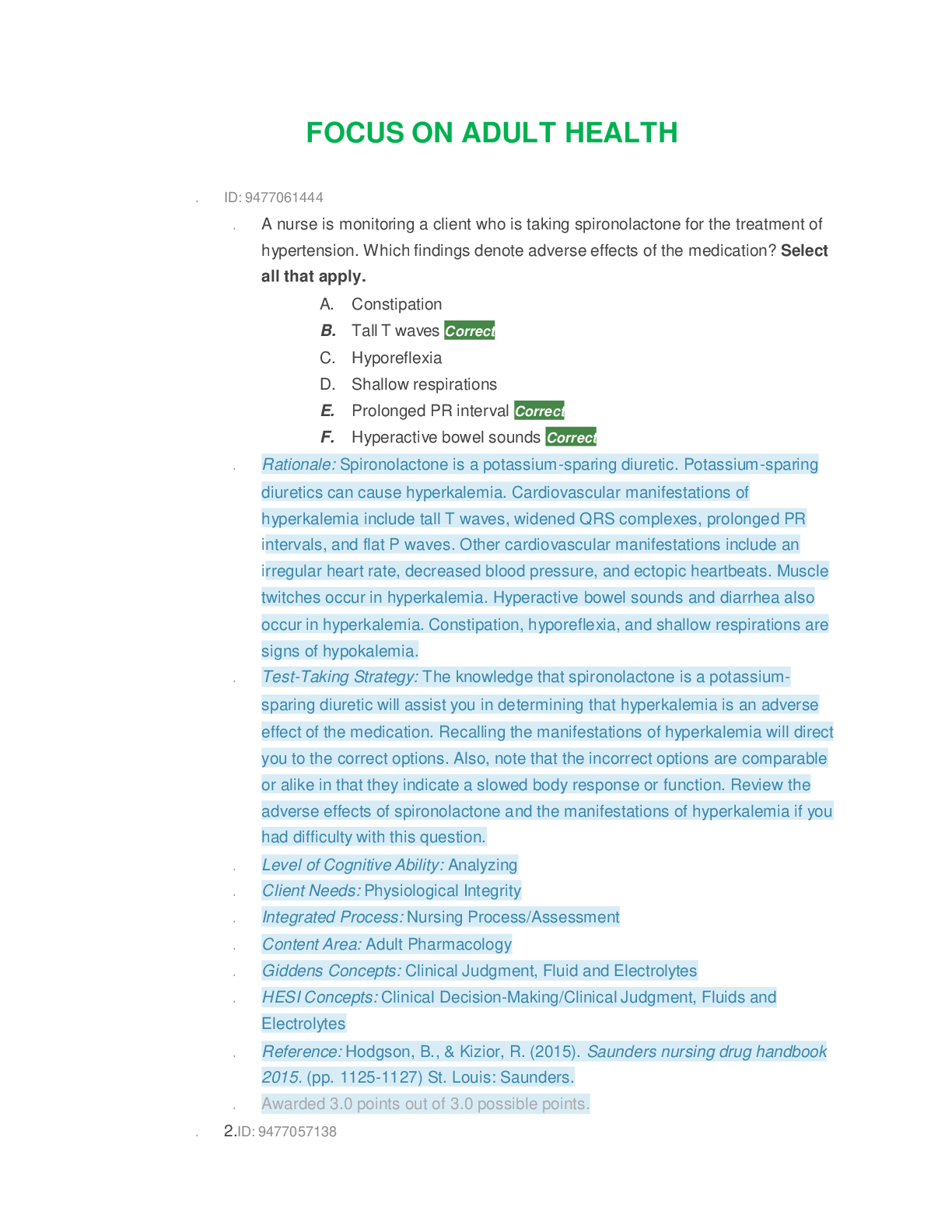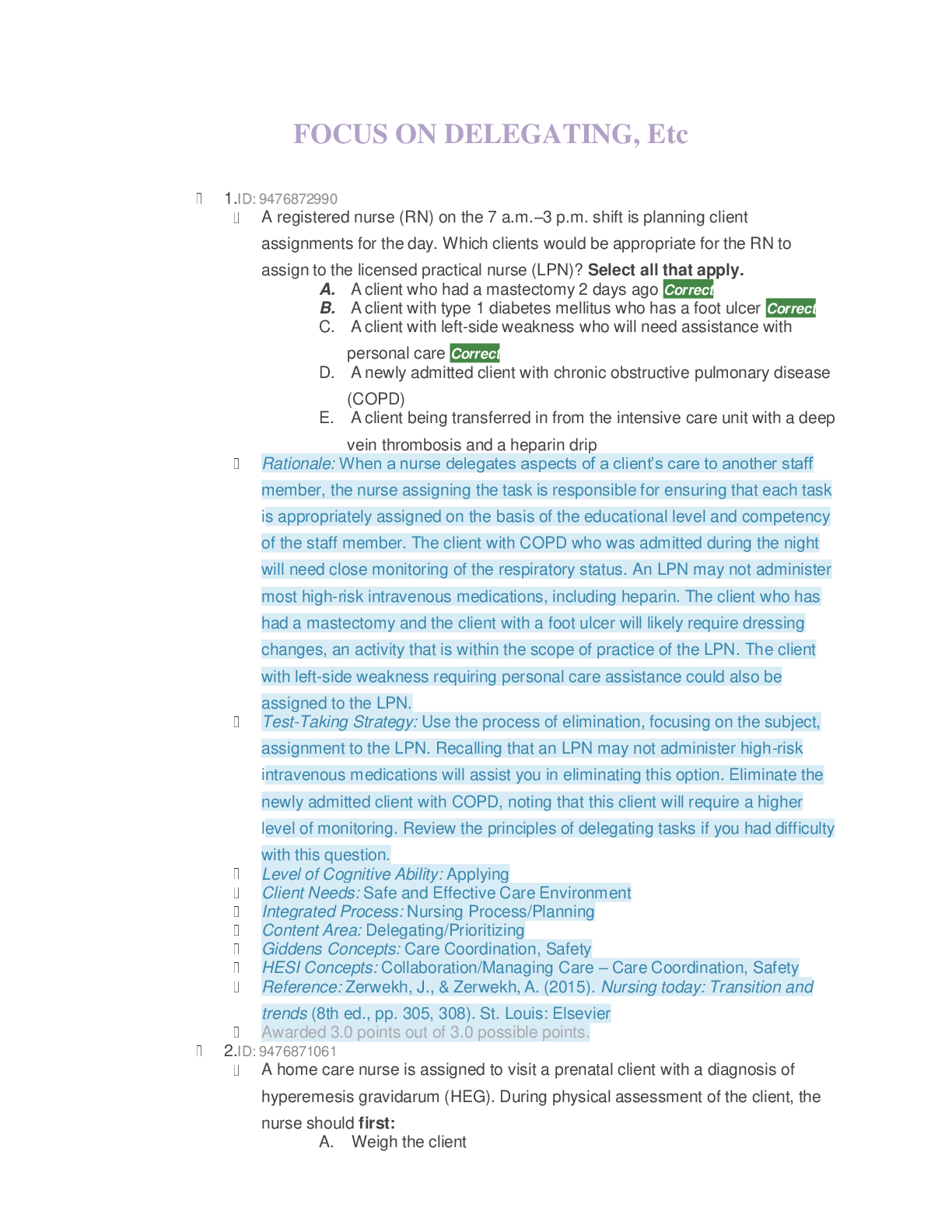*NURSING > EXAM > NSG 5003 UNIT III: MECHANISMS OF SELF-DEFENSE - QUESTIONS, ANSWERS AND RATIONALE (All)
NSG 5003 UNIT III: MECHANISMS OF SELF-DEFENSE - QUESTIONS, ANSWERS AND RATIONALE
Document Content and Description Below
NSG 5003 Unit III: MECHANISMS OF SELF-DEFENSE 1. Which of the following is an example of a physical barrier? 2. Which statement is true regarding the inflammatory response? 3. Which complement fa... ctor is considered an anaphylatoxin? 4. Which receptor is expressed on macrophages and facilitates recognition and phagocytosis of bacterial pathogens? 5. Which statement regarding mast cells is true? 6. Which term describes an acidic sulfur-containing lipid that produces effects similar to histamine? 7. Which statement is true regarding neutrophils? 8. What biochemical messenger is produced by macrophages and lymphocytes in response to a bacterial pathogen? 9. Chronic inflammation is characterized by a(an): 10. Which of the following are not natural barriers? (Select all that apply.) 11. Which characteristics are observable of vascular injury and inflammation? (Select all that apply.) 12. Which pathways activate the complement system? (Select all that apply.) 13. Which functions of the clotting system are exhibited at the site of injury or inflammation? (Select all that apply.) 14. Which of the following are systemic effects of inflammation? (Select all that apply.) 15. Which is a foreign or nonself substance? 16. Which statement is true regarding the immune response in humans? 17. Which statement best describes the cells and their functions in the humoral arm of the immune system? 18. Which term describes the type of immunity that occurs when preformed antibodies are transferred from a donor to a recipient? 19. What is the precise portion of the antigen that is configured for recognition and binding of an antibody? 20. Which antigen is too small to initiate an immune response? 21. Which statement is true regarding immunoglobulin A (IgA) antibodies? 22. It is true that immunoglobulin E (IgE) is: 23. Which statement is true regarding aging and the immune system function? 24. Which criteria influence the degree of immunogenicity? (Select all that apply.) 25. 26. Which definition is true? 27. Which statement is true regarding hypersensitivity reactions? 28. Which statement best describes a type I reaction? 29. What antibody binds to a mast cell? 30. Which statement is true regarding atopic individuals? 31. Which statement is true of serum sickness? 32. The Arthus reaction is an example of which type of sensitivity reaction? 33. Which statement is true regarding a type IV allergic reaction? 34. Which is an example of an alloimmune disease? 35. Which statement is true regarding unmatched packed red blood cell (RBC) transfusions? 36. Histamine release leads to which of the following? (Select all that apply.) 37. Which term describes an agent's ability to produce disease? 38. Which statement is true regarding bacteremia? 39. Which statement regarding viruses is true? 40. Which statement regarding fever is true? 41. What contributes to antibiotic-resistant pathogens? 42. The stages of pathologic infection include which of the following? (Select all that apply.) 43. Which of the following are mechanisms of antigenic variation? (Select all that apply.) 44. Which mechanisms are used by viruses to evade the immune response? (Select all that apply.) 45. What is the definition of the reactive response? 46. A stress response is initiated in what part of the nervous system? 47. A stress response results in the stimulation of which sympathetic nervous system receptors? 48. Which statement is true regarding the effects of circulating epinephrine in the body? 49. Which statement is true regarding how cortisol reacts when activated by ACTH? 50. Which statement is true regarding the immune system in response to stress? 51. Which of the following is a function of norepinephrine? 52. Which statement regarding corticotropin-releasing hormone (CRH) and its influence on the immune system is true? 53. Which statement is true regarding stress and the immune system? 54. Which of the following are stages in the development of the general adaptation syndrome? (Select all that apply.) [Show More]
Last updated: 1 year ago
Preview 1 out of 18 pages
Instant download
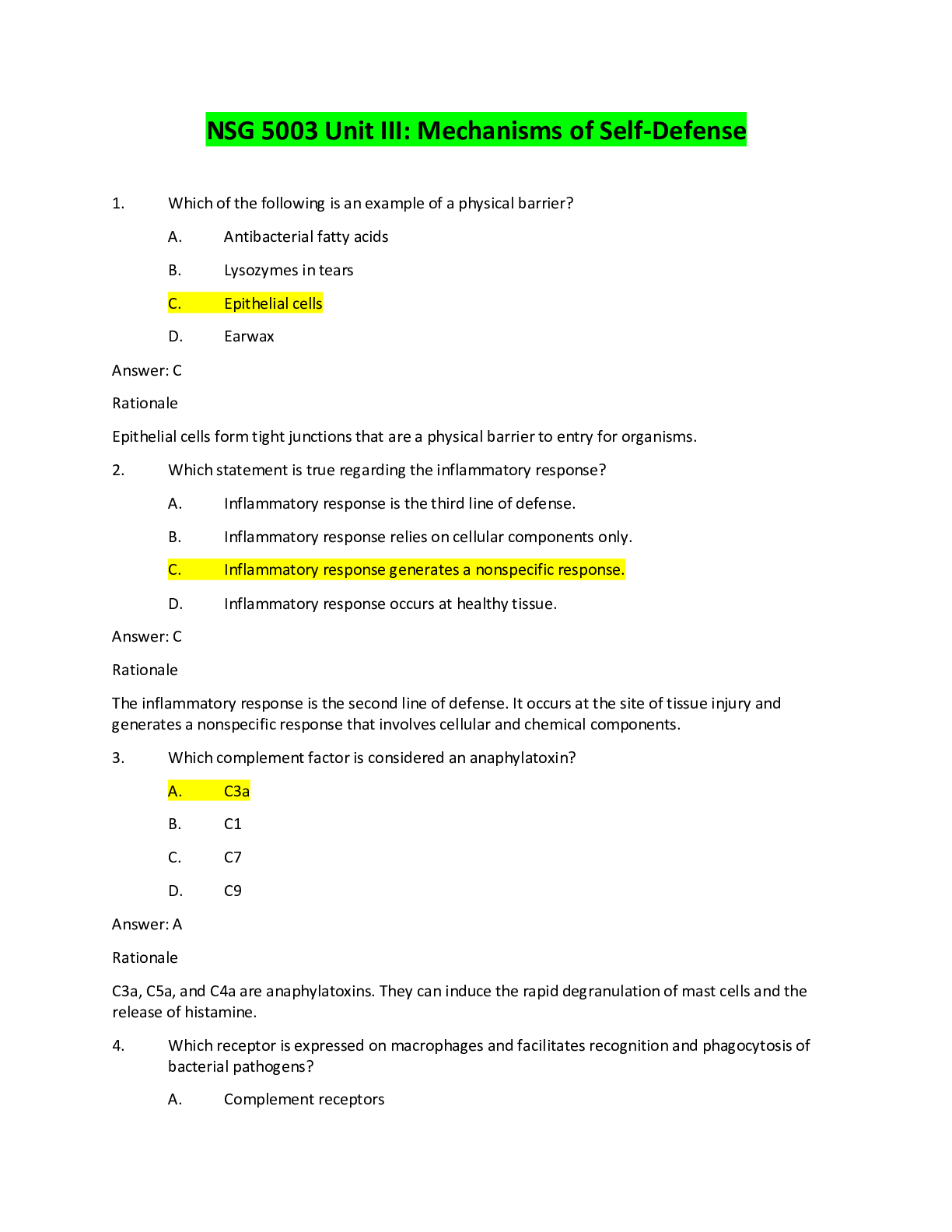
Buy this document to get the full access instantly
Instant Download Access after purchase
Add to cartInstant download
Reviews( 0 )
Document information
Connected school, study & course
About the document
Uploaded On
Feb 16, 2021
Number of pages
18
Written in
Additional information
This document has been written for:
Uploaded
Feb 16, 2021
Downloads
0
Views
43

